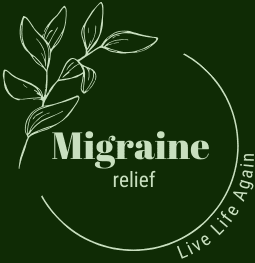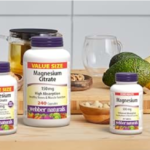The Eye-Opening Truth About Supplements for Eye Health
In our modern, screen-dominated world, maintaining good eye health is more crucial than ever. With an increasing number of people experiencing eye strain, dry eyes, and other vision-related issues, it’s no surprise that the market for eye health supplements is booming. But do these supplements really work? Let’s dive into the science behind some of the most popular supplements for eye health and see what benefits they might offer.
1. Lutein and Zeaxanthin
These carotenoids are found in high concentrations in the macula, a part of the retina responsible for central vision. Lutein and zeaxanthin act as natural antioxidants and blue light filters, protecting the eyes from damage caused by oxidative stress and harmful light exposure.
Research Highlights:
- Studies suggest that higher dietary intake of lutein and zeaxanthin is associated with a lower risk of age-related macular degeneration (AMD).
- Supplementation with these carotenoids can improve visual performance and reduce glare sensitivity.
2. Omega-3 Fatty Acids
Omega-3 fatty acids, particularly eicosapentaenoic acid (EPA) and docosahexaenoic acid (DHA), are crucial for maintaining the health of the retina and preventing dry eyes.
Research Highlights:
- Omega-3s have anti-inflammatory properties that can help reduce the risk of dry eye syndrome.
- Some studies indicate that a diet rich in omega-3s can slow the progression of AMD and support overall retinal health.
3. Vitamin A
Vitamin A is essential for vision, particularly in low-light conditions. It plays a critical role in the formation of rhodopsin, a protein in the eyes that allows us to see in the dark.
Research Highlights:
- A deficiency in vitamin A can lead to night blindness and other vision problems.
- Vitamin A supplementation is vital in preventing xerophthalmia, a condition characterized by dry, thickened, and cloudy eyes.
4. Vitamin C
Vitamin C is a powerful antioxidant that helps protect the eyes from damage caused by free radicals. It also supports the health of blood vessels in the eyes.
Research Highlights:
- High dietary intake of vitamin C has been linked to a reduced risk of cataracts.
- Vitamin C, in combination with other antioxidants, can slow the progression of AMD.
5. Vitamin E
Vitamin E, another potent antioxidant, protects eye cells from damage caused by free radicals and oxidative stress.
Research Highlights:
- Studies have shown that vitamin E, along with other nutrients, can help reduce the risk of advanced AMD.
- A combination of vitamin E and other antioxidants has been found to lower the risk of cataracts.
6. Zinc
Zinc is a mineral that plays a vital role in maintaining retinal health and ensuring proper functioning of antioxidant enzymes in the eyes.
Research Highlights:
- Zinc supplementation has been shown to slow the progression of AMD.
- It helps maintain the health of the retina and supports the activity of enzymes that prevent oxidative damage.
7. Bilberry
Bilberry, a close relative of the blueberry, is rich in anthocyanins, which are powerful antioxidants that can improve eye health.
Research Highlights:
- Bilberry extract is believed to enhance night vision and reduce eye fatigue.
- Some studies suggest that bilberry can help protect against retinal damage and improve capillary integrity
Final Thoughts
While supplements can play a role in supporting eye health, they are most effective when used in conjunction with a balanced diet rich in fruits, vegetables, and omega-3 fatty acids. It’s also important to maintain regular eye check-ups and follow good eye care practices, such as reducing screen time, wearing protective eyewear, and managing chronic health conditions like diabetes and hypertension.
As with any supplement, it’s crucial to consult with a healthcare provider before starting a new regimen, especially if you have existing health conditions or are taking other medications. By taking a proactive approach to eye health, you can help ensure that your vision remains clear and sharp for years to come.
Citation for each supplement topic discussed:
- Lutein and Zeaxanthin:
- Ma, L., Dou, H. L., Wu, Y. Q., Huang, Y. M., Huang, Y. B., Xu, X. R., & Qian, F. (2012). Lutein and zeaxanthin intake and the risk of age-related macular degeneration: a systematic review and meta-analysis. The British Journal of Nutrition, 107(3), 350-359.
- Omega-3 Fatty Acids:
- SanGiovanni, J. P., & Chew, E. Y. (2005). The role of omega-3 long-chain polyunsaturated fatty acids in health and disease of the retina. Progress in Retinal and Eye Research, 24(1), 87-138.
- Vitamin A:
- Sommer, A. (2008). Vitamin A deficiency and clinical disease: an historical overview. The Journal of Nutrition, 138(10), 1835-1839.
- Vitamin C:
- Jacques, P. F., Taylor, A., Moeller, S., Hankinson, S. E., Rogers, G., Tung, W., … & Chylack, L. T. Jr. (2005). Long-term nutrient intake and 5-year change in nuclear lens opacities. Archives of Ophthalmology, 123(4), 517-526.
- Vitamin E:
- Age-Related Eye Disease Study Research Group. (2001). A randomized, placebo-controlled, clinical trial of high-dose supplementation with vitamins C and E, beta carotene, and zinc for age-related macular degeneration and vision loss: AREDS report no. 8. Archives of Ophthalmology, 119(10), 1417-1436.
- Zinc:
- Age-Related Eye Disease Study Research Group. (2001). A randomized, placebo-controlled, clinical trial of high-dose supplementation with vitamins C and E, beta carotene, and zinc for age-related macular degeneration and vision loss: AREDS report no. 8. Archives of Ophthalmology, 119(10), 1417-1436.
- Bilberry:
- Muth, E. R., Laurent, J. M., & Jasper, P. (2000). The effect of bilberry dietary supplementation on night visual acuity and contrast sensitivity. Alternative Medicine Review, 5(2), 164-173.
These citations provide foundational research and insights into the benefits of these supplements for eye health.




